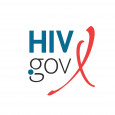HIV.gov continued its daily coverage of IAS’s International AIDS Conference (AIDS 2024) in Munich, Germany, on Wednesday, July 24. Below are recaps of our four livestreamed conversations:
NIH Research Updates
Brian Minalga, Deputy Director of the NIH-supported Office of HIV/AIDS Network Coordination, spoke with Dr. Carl Dieffenbach, Director of the Division of AIDS at NIH’s National Institute of Allergy and Infectious Diseases. They discussed the importance of including people who inject drugs in HIV research because the population is disproportionately affected by HIV and currently underrepresented in clinical studies. They highlighted the current HIV Prevention Trials Network 103 study of long-acting lenacapavir for HIV pre-exposure prophylaxis (PrEP) in people who inject drugs in the United States.
They also discussed the NIH-supported HIV clinical trials networks, and the process underway to plan for the next ten years of HIV clinical research through networks. They both emphasized that the networks not only continue to advance HIV research, but they also serve as a platform for responding to urgent health threats affecting people with and without HIV, such as mpox and COVID-19.
Watch their conversation below:
Following the presentation of promising results from the PURPOSE 1 study of twice-yearly lenacapavir for HIV PrEP in cisgender women in South Africa and Uganda, several HIV leaders gathered to discuss the implications of the findings for HIV prevention. Dr. Dieffenbach, Dr. Jonathan Mermin, Director of CDC’s National Center for HIV, Viral Hepatitis, STD, and TB Prevention, and PACHA member Tori Cooper shared their thoughts.
The PURPOSE 1 presentation showed lenacapavir was 100% effective at preventing HIV in cisgender women when compared to the estimated HIV incidence in the general population in the study countries. The group discussed how a twice-yearly PrEP could overcome barriers to use for some people and reduce the number of healthcare visits needed for people using PrEP. They also reminded viewers that lenacapavir is not yet approved for use.
They also discussed another study, PURPOSE 2, which examined the efficacy and safety of lenacapavir for PrEP among gay and bisexual men, transgender women, and nonbinary people who have sex with people assigned male a birth. Finally, they discussed outstanding questions from the PURPOSE 1 study, including the need to better understand why two daily oral PrEP formulations that were also examined in the study did not show a preventive effect.
HIV Criminalization Laws
Earlier in the day, HIV.gov Director Miguel Gomez asked Francisco Ruiz, White House Office of National AIDS Policy Director, Janet Butler-McPhee of the HIV Legal Network, and Robert Suttle of the Elizabeth Taylor AIDS Foundation to share their thoughts about Wednesday’s opening plenary on HIV criminalization laws. The panelists discussed how outdated and unscientific laws add to stigma and discrimination against people with HIV and drive new HIV transmissions. The conversation also focused on reasons to be hopeful about progress being made.
Watch their conversation at the top of this blog post.
PEPFAR and Safe, Responsible Use of AI
Miguel also spoke with Dr. Mike Reid, Chief Science Officer in the U.S. Department of State’s Bureau of Global Health Security and Diplomacy — PEPFAR, about the safe, responsible use of artificial intelligence (AI). Dr. Reid said PEPFAR is looking at the transparent and incremental ways to implement AI to advance the program’s strategic goals. PEPAR will participate in a workshop on Thursday at IAS highlighting several use cases of AI.
View their conversation below:
About AIDS 2024
The International AIDS Conference is the world’s largest conference on HIV and AIDS. Taking place July 22-26 in Munich, Germany, AIDS 2024 brings together in person and virtually an estimated 15,000 scientists, policymakers, healthcare professionals, people living with HIV, and others at the intersection of science, advocacy, and human rights. The conference features more than 200 sessions, including plenaries, symposia, oral abstracts, workshops, Global Village activities, pre-conferences, and satellites. Visit the conference website for more information.
Follow, watch, and share our coverage of the conference on HIV.gov’s Facebook page, Twitter/X, YouTube, and the LinkedIn page for the HHS Office of Infectious Disease and HIV/AIDS Policy.
This blog post was originally published July 24, 2024, on HIV.gov.








Comments
Comments